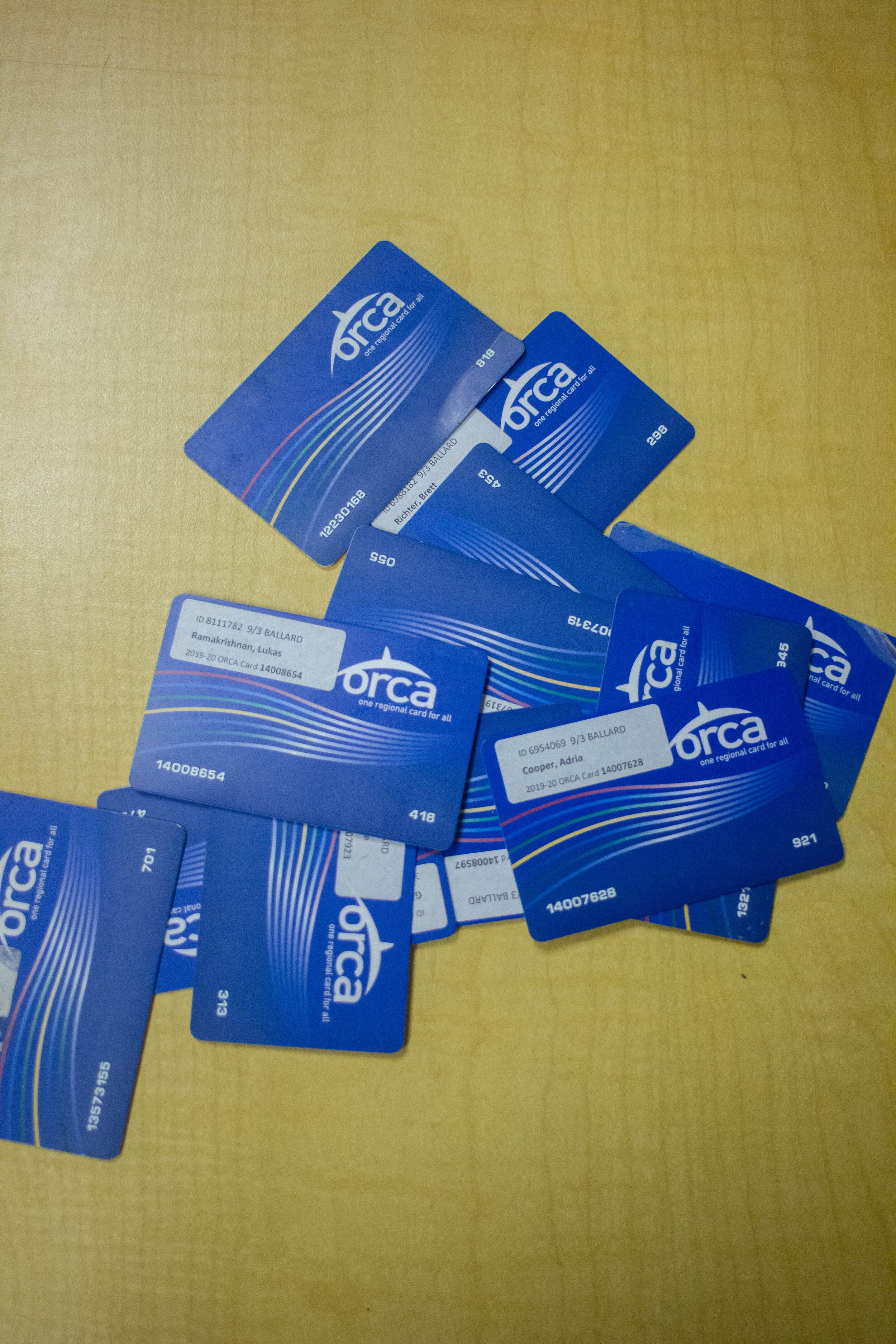The “car-tab” Initiative is cutting the funding for transit projects all across the state, leading to cloudy futures
Will Shepard, Staff Reporter
Originally published November 27, 2019
Skye McDonald
Initiative 976 passed with a majority of 55% of the statewide vote this past election in Washington. I-976, or the “car-tab” initiative, would limit the amount residents in Washington pay per car to $30.
In addition to limiting the amount of money that Sound Transit can raise to expand light rail, reaching Ballard in 2035, the “car-tab” initiative would also limit Seattle-specific funds used to provide free ORCA cards to every Seattle Public High School student.
Free ORCA cards exist because, in 2014, Seattle voters passed the Seattle Transportation Benefit District Proposition 1 (STBD), which was created to improve the frequency and quality of King County Metro transit service.
STBD was funded by a $60 car tab fees and 0.1% sales tax, and the reduction of these under I-976 is causing uncertainty for the program.
Candida Lorenzana,the Division Director of Transit and Mobility, highlighted the numerous benefits and opportunities the STBD allows for.
“[STBD] allows the city to invest in Metro Transit service, so in addition to the ORCA card program we also invest about 350,000 hours [of transit service],” said Lorenzana. “This means lots of more frequent buses, more D line buses running next to Ballard High School.”
According to the 2017 STBD Performance Report, “In 2016, STBD launched the Youth ORCA Program in cooperation with the Seattle Public Schools (SPS) to provide eligible middle and high school students with a free ORCA card.”
This was the creation of the ORCA Opportunity Program, which now provides free ORCA cards to all SPS high school students. This program was created in large part by the actions of Rainier Beach High School students who raised awareness through marches and town halls on the “barriers of transit access,” and the limited ways in which students can reach and effectively use buses and Metro service.
“The ORCA Program originated through the efforts of Rainier Beach High School students, which is really important to the story because it’s really because of them that there is an impetus,” said Lorenzana. “Because of them there was energy to go and do something bigger and be able to give all high school students passes.”
After the program first started, it only supplied free ORCA cards to eligible students, students that lived in a household that had an income below 200% of the Federal Poverty Line or to students who live more than two miles away from their school.
In August 2018, the program expanded to include all Seattle Public High School students, so that 11,900 ORCA cards were distributed last year.
With the passage of I-976, the future of the ORCA opportunity program is uncertain.
“We have a contract through August of 2020 with [King County] Metro to buy ORCA passes for high school students, so the current passes are a part of that,” said Lorenzana. “We’re still working through what this means from a budgetary standpoint and what the impacts of that look like.”
I-976 will also do major damage to transit projects and transportation necessities all over the state, with Governor Jay Inslee already directing the Washington Department of Transportation to postpone all unstarted projects until further notice.
Metro has also warned that without the funding provided by the car tabs that I-976 slashes, it would be forced to cut bus routes.
Heather Marx, Seattle’s Director of Downtown Mobility believes the dangers of the I-976 could be far reaching and heavily impact the state in multiple areas besides just transportation.
“The whole reason that we came up with the STBD and with this suite of improvements and transit services is that transit is critical to the way we move people to and through our growing region,” said Marx. “If everybody had to drive their car, no one would get anywhere.”
Because of I-976, less money will be able to be put into buses, Metro, and Seattle Transit as a whole. This will result in a decline in quality and frequency, and eventually could lead to overcrowding.
“One of the things we think might happen is that fewer and fewer people will use transit to get where they need to go and they’ll revert back to driving their cars which will make congestion and traffic in Seattle much worse,” said Marx.
In addition to cutting funding for many transit projects, the introduction of I-976 would also have environmental impacts. “The single biggest source of greenhouse gas emissions is private automobiles, and so the biggest thing that any one individual can do in the puget sound region is drive less,” said Marx. “There’s an argument to be made that reducing access to transit has a large impact on our climate.”
The city is contemplating a number of legal challenges against I-976 and its sponsor, Tim Eymen, and there has already been a collective Injunction from 10 plaintiffs, including the City of Seattle, to prevent I-976 from taking effect.

























